Diversity, equity and inclusion in MSU Arts
May 1, 2024 - Morgan Butts
University Arts and Collections highlights several programs advancing diversity, equity and inclusion in 2023-24, including works in the Beal Botanical Gardens, MSU Broad Art Museum, Wharton Center, MSU Museum and Native American Grave Protection and Repatriation Act. Learn more about the impact of diversity, equity and inclusion at MSU in the 2023-24 Diversity, Equity and Inclusion Report.
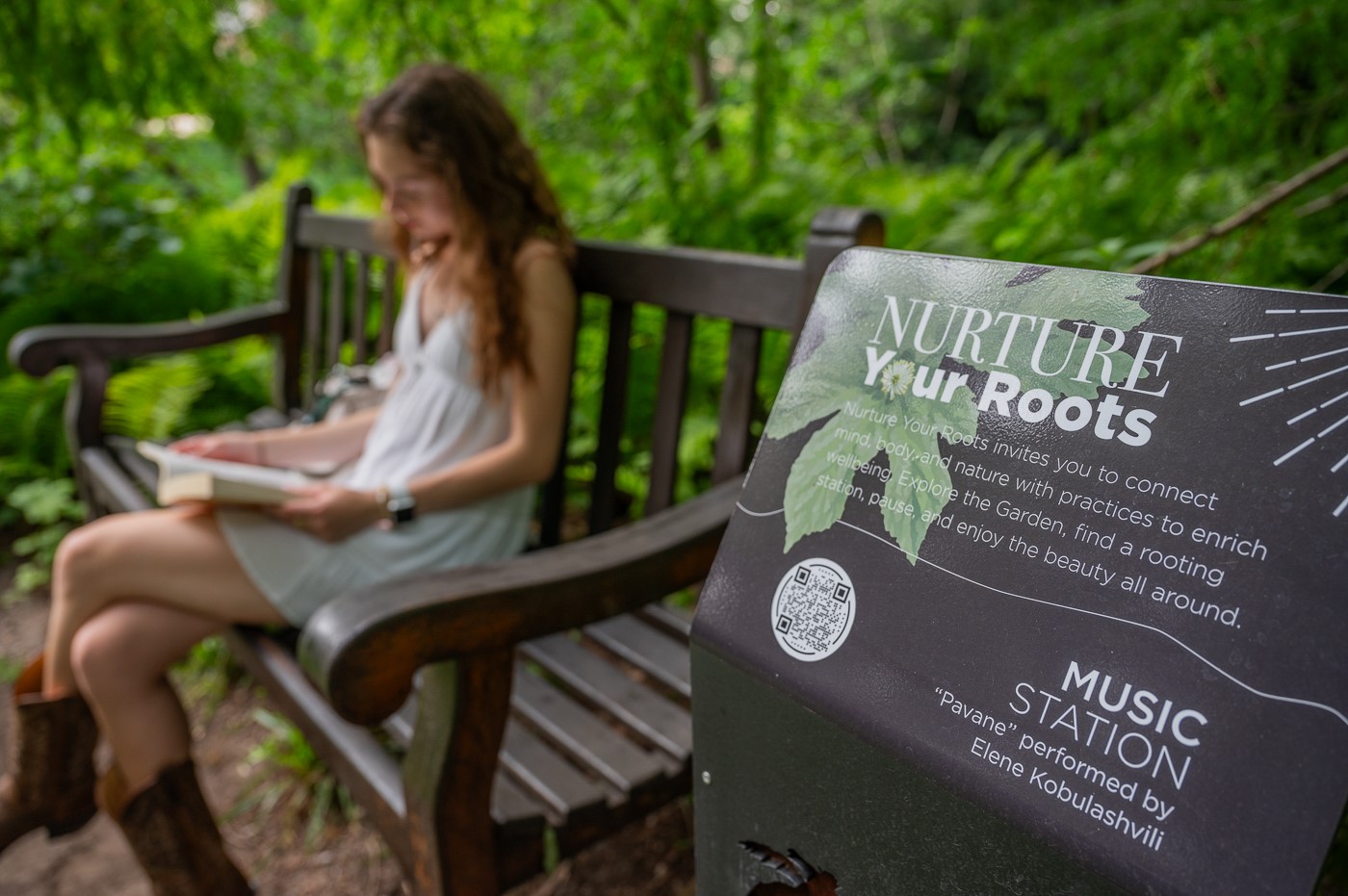
A student reads near a Rooting Station in Beal Botanical Garden. CREDIT: DERRICK L. TURNER
CULTIVATING WELL-BEING AND BELONGING AT BEAL BOTANICAL GARDEN
MSU alumna Angelica Bajos considers Beal Botanical Garden her home away from home. After working to support wellbeing and community programming as a Beal Scholar when she was an MSU student, Bajos joined the Beal team full-time in the spring of 2024 as community and sustainability coordinator.
During her time as a Beal Scholar, Bajos worked closely with the inaugural chair of the Department of African American and African Studies, Dr. Ruth Nicole Brown, on the Extending Roots initiative, which invites students from the AAAS department to create artistic offerings centered on their Black lived experiences describing relations to Beal Botanical Garden and nature more broadly. With this community collaboration, Beal Botanical Garden intends to foster inclusivity within outdoor spaces. In a place on campus where many in the MSU community already seek solace and belonging, partnership programs such as this demonstrate Beal Botanical Garden’s commitment to being a space at MSU where our vibrant, diverse Spartan community feels represented and has a sense of ownership.
Bajos’ work will continue this ongoing partnership with AAAS, help grow the garden’s Nurture Your Roots wellbeing program and generate new opportunities for students from all backgrounds to find their home away from home right here on campus.
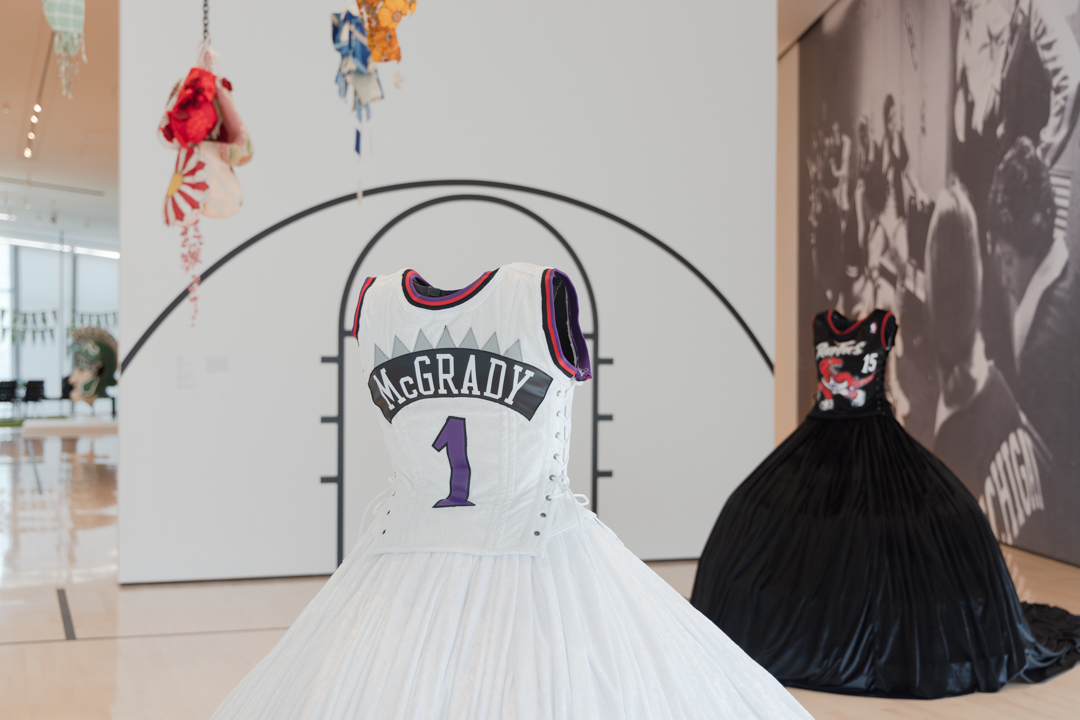
Resistance Training installation view at the MSU Broad Art Museum, 2023. COURTESY MSU BROAD ART MUSEUM
MSU BROAD ART MUSEUM SPOTLIGHTS THE CONNECTION BETWEEN ARTS, SPORTS AND CIVIL RIGHTS
In the fall of 2023, the MSU Broad Art Museum opened “Resistance Training: Arts, Sports and Civil Rights.” The exhibition explored how artists and athletes use their platforms to bring about change in the struggle for civil rights and social justice. This exhibition highlighted the many individuals at MSU and beyond who were central to these stories of progress.
Sports in societies across the globe are believed to be so vital that the United Nations has declared them a human right.All of the artists in the exhibition use sports, a shared interest by many, as an entry point into conversations about social justice. During the 1950s and 1960s, the struggle for civil rights was present in virtually all aspects of society. Hard-fought battles for change, such as integration and the passage of Title IX, affected the classrooms and the sports fields on college campuses across the United States. MSU was not immune to these social changes and often was a leader on many of these important issues. Included in this exhibition were archival images and associated objects from campus collections documenting the many transformational changes and struggles for civil rights right here at MSU.
In celebrating how both artists and athletes have moved the societal needle in the direction of justice, the opening of “Resistance Training” was the most attended exhibition reception since the museum welcomed its first visitors in 2012. This demonstrates the importance of this conversation to our MSU community and the power of art in empowering dialogue about important issues.
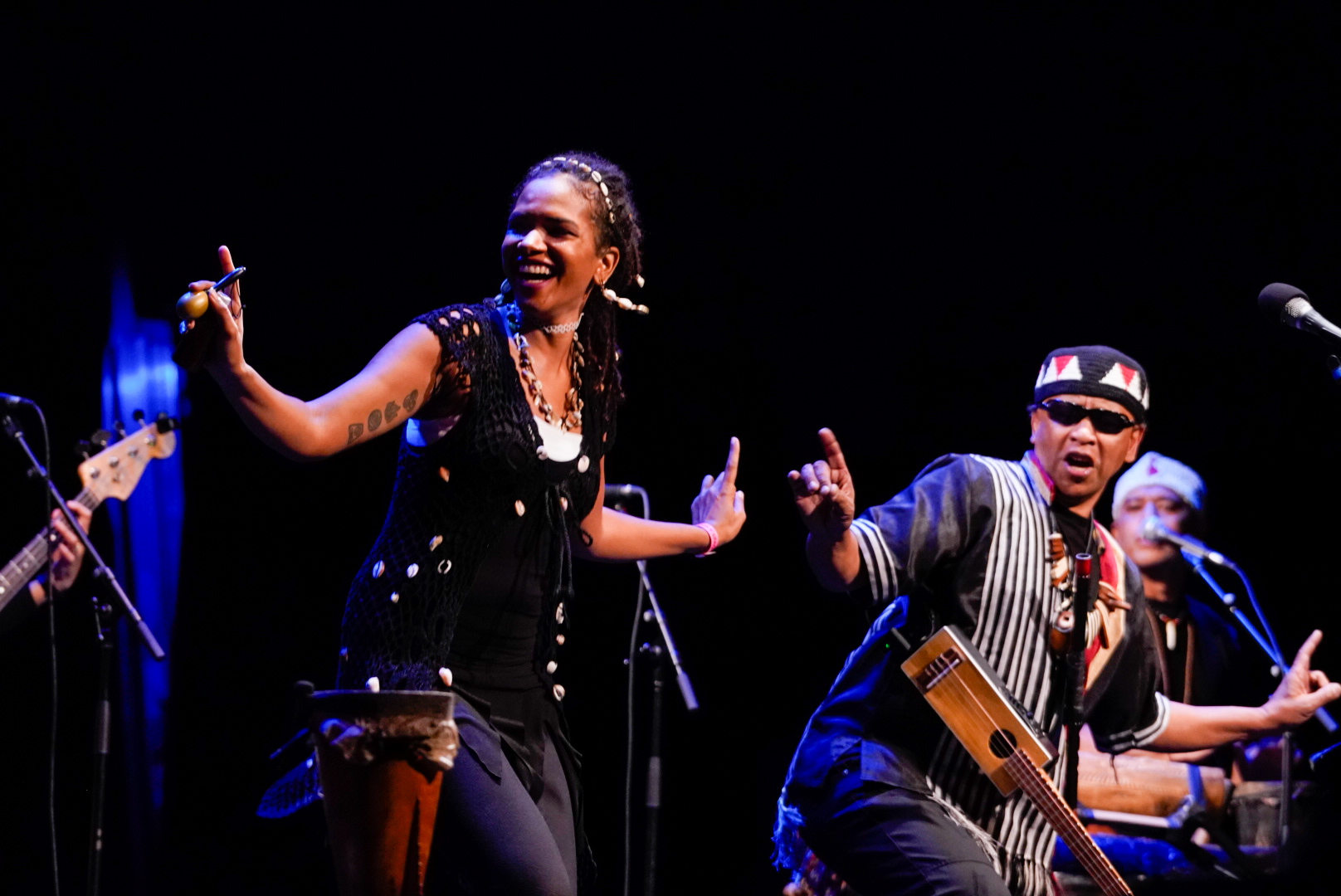
Small Island Big Song, watch the video. CREDIT KIMMI CRANES
UPLIFTING UNDERREPRESENTED VOICES IN THE CLIMATE CONVERSATION THROUGH SONG
In March, Wharton Center hosted Small Island Big Song, a weeklong artist residency and multi-platform project uniting Asian American and Pacific Islander communities through music, a shared sense of identity around the sea and the impacts of our climate crisis on this region.
Furthering the educational outreach mission of the university and Wharton Center, the residency featured engagements with the musicians from the project and our surrounding Indigenous community through MSU’s Native American Institute and the Nokomis Cultural Heritage Center, K–12 interactions with Lansing and Haslett public schools, curricular connections in the Residential College in the Arts and Humanities and the Arts Living-Learning Community, a themed dinner and film screening in partnership with MSU’s Culinary Services and more.
Small Island Big Song engaged eight musicians from island nations in the Pacific and Indian Oceans through a residency inspired by their unique vantage point on the frontline of the Climate Crisis. Multiple departments at MSU are engaged, including Indigenous Studies, Asian Studies and Music, as part of the fifteen engagement touchpoints in the residency week. The residency week culminated in a school and public performance at Wharton Center, inspiring new relationships across campus and the community and using the arts to drive civic engagement and dialogue.
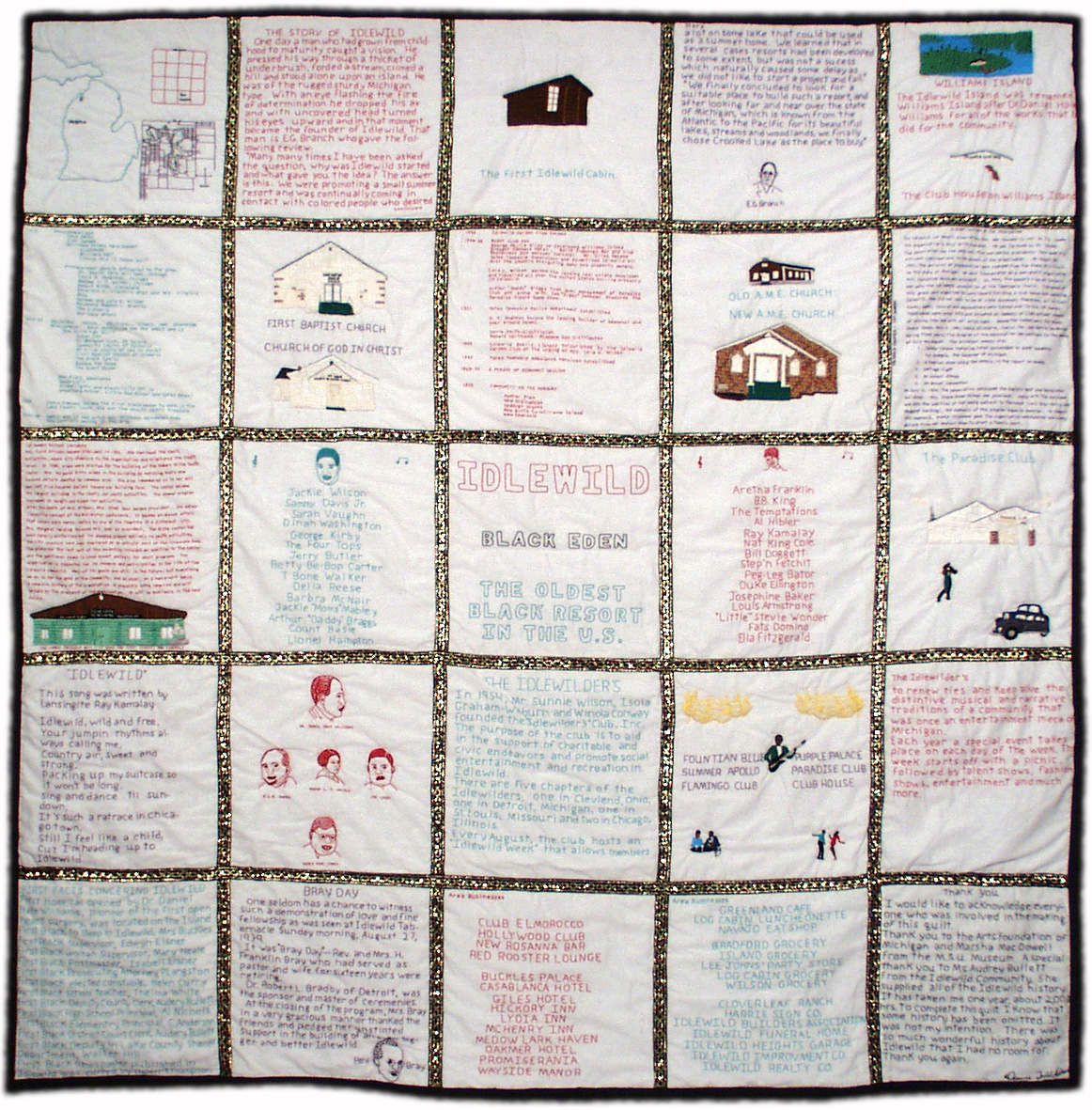
African American Quilt Index Page. COURTESY: MSU MUSEUM
EXPANDING THE VISIBILITY OF AFRICAN AMERICAN ARTISANS IN PARTNERSHIP WITH THE SMITHSONIAN
This year, the MSU Museum was selected as one of four organizations participating in a cultural heritage preservation project led by the Smithsonian’s Center for Folklife and Cultural Heritage. The initiative aims to broaden the visibility of underrepresented local elder African American artisans through the Cultural Sustainability and Legacy Planning for Craft Artists project.
The MSU Museum is Michigan’s first Smithsonian Affiliate—a national outreach program that develops long-term collaborative partnerships with museums, educational and cultural organizations to enrich communities with Smithsonian resources.
In leading the Michigan African American Craft Initiative Project, the MSU Museum featured a series of five workshops in February, focused on documenting methodologies, archiving techniques and community engagement for Black craft artists. The workshops were led by experienced museum and research professionals, collaborating with two undergraduate students from the Department of African American and African Studies and two doctoral graduate students from the College of Education. The project then culminated in two public-facing workshops held at the MSU Detroit Center, which were documented and shared along with associated artifacts on the MSU Museum’s Quilt Index website, providing a lasting testament to the project’s impact.
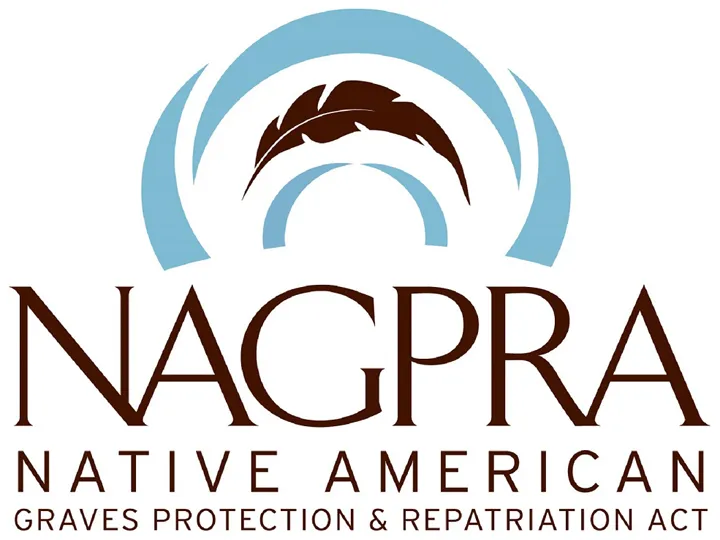
NATIVE AMERICAN GRAVE PROTECTION AND REPATRIATION ACT
This past year, Michigan State University was recognized nationally through the award of a significant federal Native American Graves Protection and Repatriation Act, or NAGPRA, Consultation Grant to facilitate audits, consultations and repatriations of cultural objects.
NAGPRA is a U.S. federal law that requires institutions receiving federal funding, like universities, to inventory their collections, consult with federally recognized Native American and Native Hawaiian Tribes and repatriate human remains, funerary objects, sacred objects and objects of cultural patrimony back to their rightful Indigenous communities. MSU created a joint NAGPRA effort in 2019, guided by the Office of the Provost and the Office of Research Regulatory Support, to establish a process for increased collaboration and dialogue between scholars and Tribal officials. MSU recognizes that NAGPRA, while having its foundation as a legal matter, is a deeply personal, cultural and spiritual endeavor. As such, the university has created a unique space dedicated to this process, working to reframe our collections as vital cultural heritage.
These efforts involve working closely with Tribal partners throughout the auditing process and educating ourselves on the best means to engage with the collections based on their preferences and needs. The efforts around this grant project were no exception—Michigan Tribes were involved in the initial formation of the grant project, and ultimately, these efforts will position the university to be more proactive in providing complete, descriptive information so that Tribes have the information they need before engaging in consultations. MSU is committed to promoting greater access, transparency and ownership to these communities.

